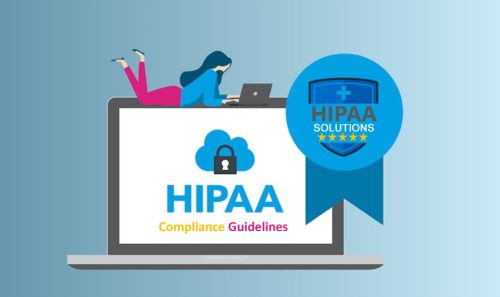
HIPAA Compliance for Occupational Therapists
As an occupational therapist, you play a critical role in the healthcare industry by helping patients regain their independence and improve their quality of life. However, you must also ensure that you comply with the HIPAA regulations, which are designed to protect patient privacy and confidentiality. In this article, we’ll discuss the HIPAA regulations that occupational therapists must follow to provide the highest level of care to their patients.
What is HIPAA?
HIPAA is a federal law that regulates the use and disclosure of Protected Health Information (PHI). PHI includes any information related to a patient’s health status, medical history, treatments, or payment for healthcare services. HIPAA requires covered entities, such as healthcare providers, to implement administrative, physical, and technical safeguards to protect the privacy and security of PHI.
Why is HIPAA Compliance Important for Occupational Therapists?
As an occupational therapist, you work with sensitive patient information on a daily basis. This includes their medical history, current health condition, and personal information. It’s your responsibility to ensure that this information is kept confidential and secure. That’s where HIPAA compliance comes in.
Here is why HIPAA Compliance is Important for Occupational Therapists:
Protecting Patient Privacy
One of the primary reasons why HIPAA compliance is important for occupational therapists is to protect patient privacy. As a healthcare provider, you have access to sensitive patient information. This information must be kept confidential and secure to maintain patient trust and ensure their privacy is protected.
Avoiding Penalties and Fines
HIPAA violations can result in hefty penalties and fines. Occupational therapists who fail to comply with HIPAA regulations can be fined up to $50,000 per violation and up to $1.5 million per year for repeated violations. By being HIPAA compliant, occupational therapists can avoid these costly fines and penalties.
Building Patient Trust
HIPAA compliance is essential for building patient trust. Patients want to know that their personal and medical information is being handled with care and kept confidential. By complying with HIPAA regulations, occupational therapists can reassure patients that their privacy is being protected.
Ensuring Legal Compliance
HIPAA compliance is not optional. Occupational therapists must comply with HIPAA regulations to avoid legal consequences. Failing to comply with HIPAA can result in legal action, including lawsuits, disciplinary action, and loss of license to practice.
Protecting Your Reputation
HIPAA violations can damage your professional reputation. Patients may lose trust in you if they learn that their personal and medical information has been compromised. By being HIPAA compliant, occupational therapists can protect their professional reputation and maintain patient trust.
Key HIPAA Regulations Occupational Therapists Must Follow
To ensure HIPAA compliance, occupational therapists must follow several key regulations. These include:
Obtaining Written Consent
Occupational therapists must obtain written consent from patients before disclosing their PHI. Patients have the right to review their medical records and request changes or corrections to them.
Implementing Policies and Procedures
Occupational therapists must develop and implement policies and procedures to protect PHI. These policies should cover areas such as protecting electronic PHI, obtaining written consent, and responding to data breaches.
Training Staff
Occupational therapists must ensure that all staff members are trained on HIPAA regulations and your policies and procedures. Training should cover the importance of protecting PHI, the consequences of non-compliance, and how to respond to a breach.
Securing Electronic PHI
Electronic PHI must be protected from unauthorized access or disclosure. Use secure passwords, encrypt data, and implement firewalls and antivirus software to protect electronic PHI.
Now that we’ve established why HIPAA compliance is important for occupational therapists, let’s explore some best practices for achieving it.
Tips for HIPAA Compliance for Occupational Therapists
To ensure that your practice is HIPAA compliant, follow these tips:
Review HIPAA Regulations
Take the time to understand the HIPAA regulations and how they apply to your practice. Educate yourself on the requirements, so you know what is expected of you.
Develop and Implement Policies and Procedures
Develop and implement policies and procedures that address the privacy and security of PHI. Ensure that they are followed by everyone in your practice.
Train Your Staff
Ensure that all staff members are trained on HIPAA regulations and your policies and procedures. Conduct regular training sessions to keep everyone up to date on any changes.
Secure Electronic PHI
Use secure passwords, encrypt data, and implement firewalls and antivirus software to protect electronic PHI. Regularly update your software and hardware to stay up to date with the latest security measures.
Conduct Regular Risk Assessments
Regular risk assessments can help you identify vulnerabilities in your practice and address them before they become a problem. These assessments should evaluate your policies, procedures, and technology to ensure that they meet HIPAA requirements.
HIPAA compliance is critical for occupational therapists who handle sensitive patient information. By understanding the regulations, implementing policies and procedures, training your staff, securing electronic PHI, and conducting regular risk assessments, you can ensure that your practice is following the necessary regulations and protecting your patients’ privacy and security.

